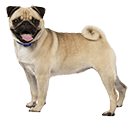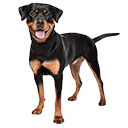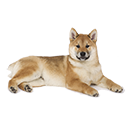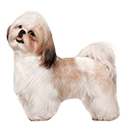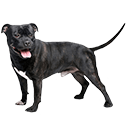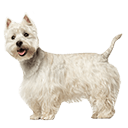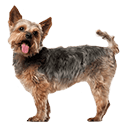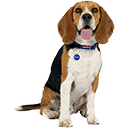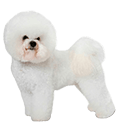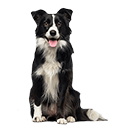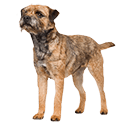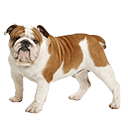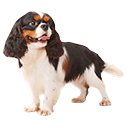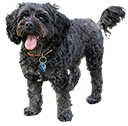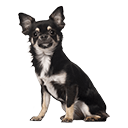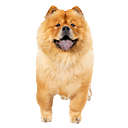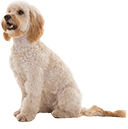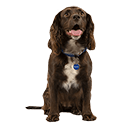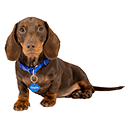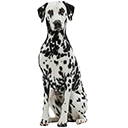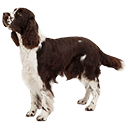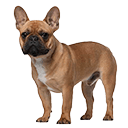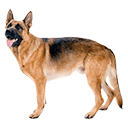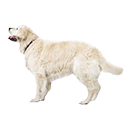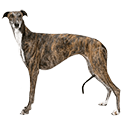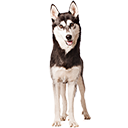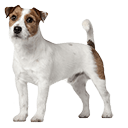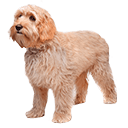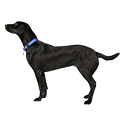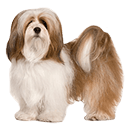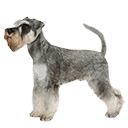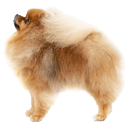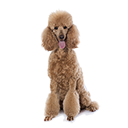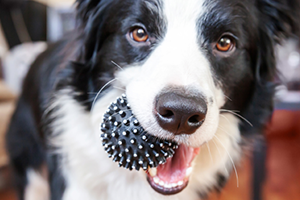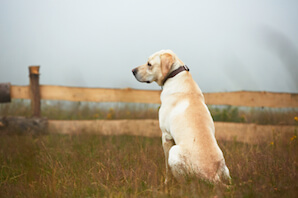If you are considering getting a puppy from a breeder,…
Read more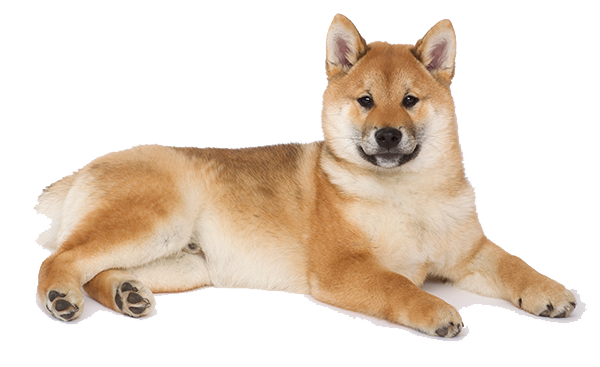

With its foxy features and alert, confident behaviour, Shibas are a popular choice for the experienced owner looking for a loyal companion.
Originally bred as a hunting dog, the Shiba Inu is among the world’s oldest breeds and one of six native to Japan. A smaller version of the Akita breed, the name Shiba Inu translates as ‘small dog’ in Japanese and it is a Spitz-type breed characterised by its thick coat, pointed ears and curly tail. Known to be a clean dog, Shiba Inu are very loyal and alert with a strong prey instinct and a knack for escaping from gardens. They make a good choice for the experienced dog owner.
Vital Stats
| Size: | Small to medium |
|---|---|
| Coat: | Very thick, double coat |
| Exercise: | 1 hour a day |
| Life span: | 12-15 years |
| Breed group: | Spitz |
| Temperament: | Loyal, alert, independent, lively |
-
40cm Coat short
coat Exercise 2+ hrs Life span 12-15years
Shiba Inu Temperament & Personality
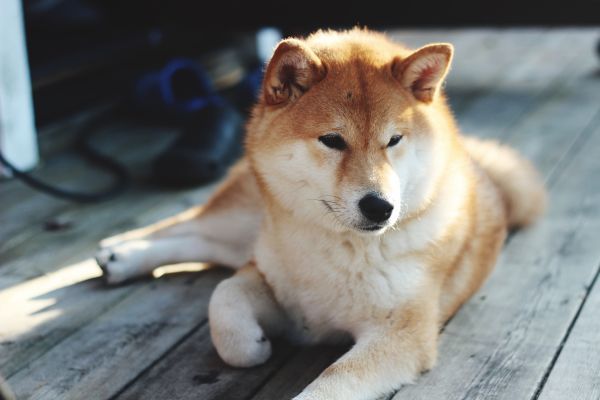
A very confident dog, the Shiba Inu temperament is alert, loyal and lively and they tend to form strong bonds with their owners. However, they can also be quite independent and territorial with a strong hunting instinct.
- Inquisitive, very playful and generally good-natured, a Shiba Inu will love being involved in everything around the home and will be a loyal and loving companion to any owner.
- It’s important to set the boundaries early with any Shiba Inu as they have a dominant side to their nature that can become a problem if left unchecked. Owners should adopt an unaggressive alpha role so that their pet knows who is in charge.
- Their strong prey drive and hunting instinct coupled with a stubborn, independent streak means that Shibas are best kept on a lead, particularly when in the presence of wildlife.
- The Shiba Inu can be quite a vocal dog with some pretty peculiar forms of communication. Not necessarily a big barker, they have a tendency to yodel when they want attention and can sometimes be heard to make a purring sound when being stroked. They’re also known for a high-pitched scream they can often make when they become excited.
- Although they’re not the best choice for first-time owners or families with young children who might test their impatient side, Shibas are a great choice for the more experienced dog owner looking for a loyal companion.
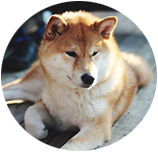
Shiba Inu Temperament & Personality
A very confident dog, the Shiba Inu temperament is alert, loyal and lively and they tend to form strong bonds with their owners. However, they can also be quite independent and territorial with a strong hunting instinct.
- Inquisitive, very playful and generally good-natured, a Shiba Inu will love being involved in everything around the home and will be a loyal and loving companion to any owner.
- It’s important to set the boundaries early with any Shiba Inu as they have a dominant side to their nature that can become a problem if left unchecked. Owners should adopt an unaggressive alpha role so that their pet knows who is in charge.
- Their strong prey drive and hunting instinct coupled with a stubborn, independent streak means that Shibas are best kept on a lead, particularly when in the presence of wildlife.
- The Shiba Inu can be quite a vocal dog with some pretty peculiar forms of communication. Not necessarily a big barker, they have a tendency to yodel when they want attention and can sometimes be heard to make a purring sound when being stroked. They’re also known for a high-pitched scream they can often make when they become excited.
- Although they’re not the best choice for first-time owners or families with young children who might test their impatient side, Shibas are a great choice for the more experienced dog owner looking for a loyal companion.
Shiba Inu Training & Exercise
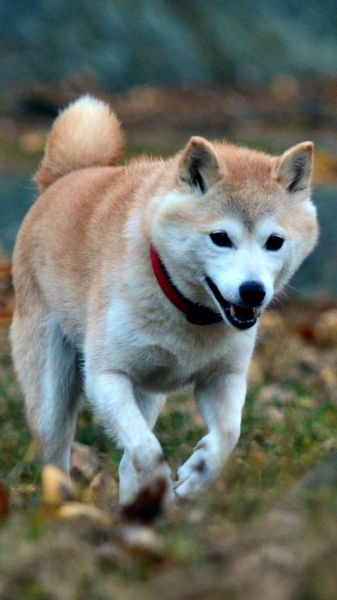
Plenty of exercise and lots of mental stimulation is very important for any Shiba Inu – not only to avoid boredom but also to help maintain a healthy weight.
- As a highly intelligent breed, Shiba Inus are relatively easy to train. However, their strong-willed nature means that training can sometimes be a challenge as they tend to lose focus and test the boundaries of what they can get away with.
- All of this means that recall training is an essential part of any Shiba’s training and development. A hunting instinct means that they will often chase anything that moves.
- A Shiba will need plenty of mental simulation to avoid boredom. They have the potential for destructive behaviour around the home if they become too bored and inactive. Indulge their playful side with toys and games and make sure you exercise their minds as well as their bodies.
- Although they can be very happy on their own, Shibas like nothing more than receiving lots of affection and attention. Involve them in anything and everything going on around the home and they’ll be very happy.
- Shiba Inu need between 40 and 60 minutes of exercise every day to satisfy their energetic, active personalities. Make sure this includes plenty of off-lead activity but be careful to do this in a safe, enclosed area. A long, interesting walk with time to explore a secure garden or open space is ideal. But make sure there are no holes in fences or open gates as these dogs are expert escape artists.
- Shibas were born to hunt and their inquisitive nature means they love problem-solving games that bring out their cunning side. Add to this a strong food motivation and games that involve finding and working for their food will always go down well. Try hiding food treats around the garden so they have to hunt them out.
- A lively and attentive personality makes for a great ball game partner. Including ball games into your training can help improve their recall training without boring them.
- In the summer months, a garden water hose can often be a great source of fun for any dog. A Shiba’s love for chasing means they’ll enjoy trying to catch the water from a hosepipe and it will help cool them down too.
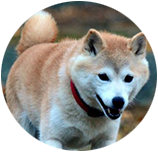
Shiba Inu Training & Exercise
Plenty of exercise and lots of mental stimulation is very important for any Shiba Inu – not only to avoid boredom but also to help maintain a healthy weight.
- As a highly intelligent breed, Shiba Inus are relatively easy to train. However, their strong-willed nature means that training can sometimes be a challenge as they tend to lose focus and test the boundaries of what they can get away with.
- All of this means that recall training is an essential part of any Shiba’s training and development. A hunting instinct means that they will often chase anything that moves.
- A Shiba will need plenty of mental simulation to avoid boredom. They have the potential for destructive behaviour around the home if they become too bored and inactive. Indulge their playful side with toys and games and make sure you exercise their minds as well as their bodies.
- Although they can be very happy on their own, Shibas like nothing more than receiving lots of affection and attention. Involve them in anything and everything going on around the home and they’ll be very happy.
- Shiba Inu need between 40 and 60 minutes of exercise every day to satisfy their energetic, active personalities. Make sure this includes plenty of off-lead activity but be careful to do this in a safe, enclosed area. A long, interesting walk with time to explore a secure garden or open space is ideal. But make sure there are no holes in fences or open gates as these dogs are expert escape artists.
- Shibas were born to hunt and their inquisitive nature means they love problem-solving games that bring out their cunning side. Add to this a strong food motivation and games that involve finding and working for their food will always go down well. Try hiding food treats around the garden so they have to hunt them out.
- A lively and attentive personality makes for a great ball game partner. Including ball games into your training can help improve their recall training without boring them.
- In the summer months, a garden water hose can often be a great source of fun for any dog. A Shiba’s love for chasing means they’ll enjoy trying to catch the water from a hosepipe and it will help cool them down too.

common illnesses in a Shiba Inu
Common Shiba Inu Health Conditions
As a dog owner you will want what’s best for your pet’s health so they can live a long, happy life. Like all breeds, Shiba Inus are prone to certain health conditions. To help you be more aware and prepared for these potential ailments if they should arise, we have put together information on the health issues that we see the most in Shiba Inus.
Common Shiba Inu Health Conditions
As a dog owner you will want what’s best for your pet’s health so they can live a long, happy life. Like all breeds, Shiba Inus are prone to certain health conditions. To help you be more aware and prepared for these potential ailments if they should arise, we have put together information on the health issues that we see the most in Shiba Inus.
Ear Problems +
Like all dogs, Shiba Inus are susceptible to various forms of skin problems, often involving the skin within the ear. The ear canal can become irritated by objects such as grass seeds, or by parasites, allergies or infections. This can lead to a condition called otitis, which simply means ‘inflammation of the ear canal’. It causes an intense itch, leading the dog to shake its head, flap its ears and scratch them using its back paws. If the otitis is due to an allergy, treatment is required for the lifetime of the dog.
Seizures and epilepsy +
Shiba Inus can suffer from conditions that affect the brain, spine and some nerves. Epilepsy is a brain disorder that results in seizures or fitting, which may begin in dogs as young as six months old. Epileptic seizures look painful, but generally aren’t. However, depending on the severity, they may need to be controlled with medication for the dog’s entire life to ensure a happy, normal existence.
Back spine and neck issues +
Shiba Inus are more prone to issues and pain with their spine and neck than other dogs. We see a mixture of issues ranging from back pain to slipped discs also known as intervertebral disc disease (IVDD). This occurs when the discs between the vertebrae (backbones) become damaged and brittle with age or general wear and tear. This makes the discs prone to rupturing, moving (‘slipping’) and pressing against the spinal cord itself. Treatment depends on the cause and location of the problem but may include medication, rest and possibly even surgery to help the dog live a comfortable life.
Tumours and growths +
Shiba Inus are prone to a variety of tumours, cysts and growths, including mast cell tumours. Mast cells are normal skin cells that help dogs respond to trauma and damage by releasing histamine. However, these cells can sometimes replicate into a serious type of tumour called a mast cell tumour. They vary widely in size and shape, but most take the form of a solitary lump within the skin. Treatment depends on the size and location of the tumour but almost always involves surgical removal.
Cruciate ligament disease +
The cruciate ligaments are found inside the knee joint and hold it stable. Cruciate ligament disease means that this ligament slowly frays and gets weaker and can get worse over time. Treatment for cruciate ligament disease usually is surgery to help stabilise the knee joint. However, like all dogs Shiba Inus can also develop arthritis from this condition, and long-term treatment is often required to keep them active.
Shiba Inu Grooming
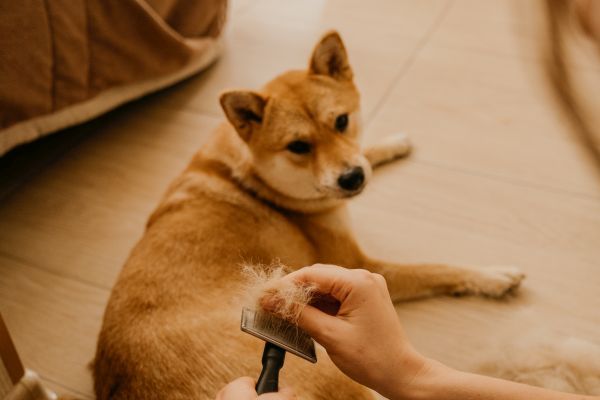
Shibas have a very thick, high shedding coat that requires regular attention.
- With a thick, double coat consisting of a soft, dense undercoat covered by a harder, straight topcoat, the Shiba Inu needs weekly brushing to keep its coat tangle free and healthy.
- Their coats come in four recognised colours: red, white, sesame and black and tan.
- Shibas are a heavy shedding, non-hypoallergenic breed so be prepared for lots of hair around the home. They tend to shed year-round but more heavily in the spring and autumn so regular brushing is needed to remove dead hair.
- Considered a very clean breed, Shibas are often known to self-groom in a similar way to a cat.
- Oral hygiene should be consistent to prevent tooth or gum issues and ears should be checked regularly for any build up of wax that could lead to infection.
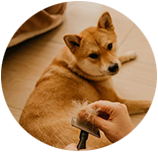
Shiba Inu Grooming
Shibas have a very thick, high shedding coat that requires regular attention.
- With a thick, double coat consisting of a soft, dense undercoat covered by a harder, straight topcoat, the Shiba Inu needs weekly brushing to keep its coat tangle free and healthy.
- Their coats come in four recognised colours: red, white, sesame and black and tan.
- Shibas are a heavy shedding, non-hypoallergenic breed so be prepared for lots of hair around the home. They tend to shed year-round but more heavily in the spring and autumn so regular brushing is needed to remove dead hair.
- Considered a very clean breed, Shibas are often known to self-groom in a similar way to a cat.
- Oral hygiene should be consistent to prevent tooth or gum issues and ears should be checked regularly for any build up of wax that could lead to infection.
Shiba Inu Nutrition
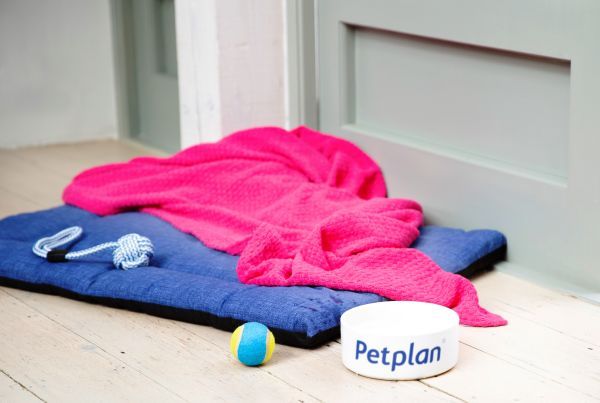
Your Shiba Inu’s nutrition plan should be appropriate for a small but active dog and help them maintain a healthy weight.
- All dogs love mealtimes, but Shibas are known to be very food motivated. As a small breed, it’s important to choose good quality food in the right sized portions so it’s best to measure out your pet’s food to avoid overfeeding and maintain both a healthy weight and a Shiba’s characteristic compact body shape.
- Like most dogs, Shibas will thrive on a balanced diet of good quality, dry dog food that contains all the necessary minerals and proteins.

Shiba Inu Nutrition
Your Shiba Inu’s nutrition plan should be appropriate for a small but active dog and help them maintain a healthy weight.
- All dogs love mealtimes, but Shibas are known to be very food motivated. As a small breed, it’s important to choose good quality food in the right sized portions so it’s best to measure out your pet’s food to avoid overfeeding and maintain both a healthy weight and a Shiba’s characteristic compact body shape.
- Like most dogs, Shibas will thrive on a balanced diet of good quality, dry dog food that contains all the necessary minerals and proteins.
What to know before you buy or rehome a Shiba Inu
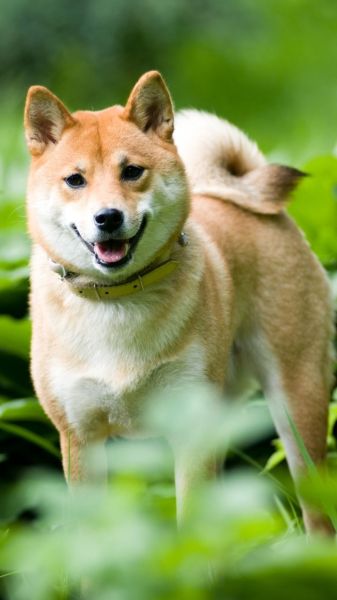
A Shiba Inu will make a great canine companion for the right owner. If you’re thinking about welcoming one into your home, here are a few important things to keep in mind.
- Loyal and loving, Shibas form a strong bond with their owners and love being part of everything that goes on around the home.
- However, they are notoriously independent and have a stubborn nature. This means they are best suited to experienced owners and families with older children.
- Between 40-60 minutes of exercise is recommend each day with lots of opportunity for mental stimulation to avoid boredom.
- These expert escape artists will test your boundaries, so it’s important to establish an alpha role early in your relationship and make sure that any gardens are fully secure.
- With a thick, double coat that sheds throughout the year, be prepared for regular grooming and cleaning up excess hair around your home.
- Always be fussy about the breeder you choose. ‘Lucy’s Law’ dictates that new puppies must be bought directly from a breeder or adopted from rescue. Third party sellers are illegal.
- There are many things to consider before getting a dog. Always find out whether a canine friend is the best pet for you before you make the leap from dog lover to dog owner.
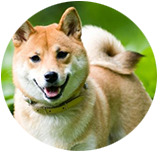
What to know before you buy or rehome a Shiba Inu
A Shiba Inu will make a great canine companion for the right owner. If you’re thinking about welcoming one into your home, here are a few important things to keep in mind.
- Loyal and loving, Shibas form a strong bond with their owners and love being part of everything that goes on around the home.
- However, they are notoriously independent and have a stubborn nature. This means they are best suited to experienced owners and families with older children.
- Between 40-60 minutes of exercise is recommend each day with lots of opportunity for mental stimulation to avoid boredom.
- These expert escape artists will test your boundaries, so it’s important to establish an alpha role early in your relationship and make sure that any gardens are fully secure.
- With a thick, double coat that sheds throughout the year, be prepared for regular grooming and cleaning up excess hair around your home.
- Always be fussy about the breeder you choose. ‘Lucy’s Law’ dictates that new puppies must be bought directly from a breeder or adopted from rescue. Third party sellers are illegal.
- There are many things to consider before getting a dog. Always find out whether a canine friend is the best pet for you before you make the leap from dog lover to dog owner.
FAQs
Are Shiba Inus good family dogs?
Whilst Shiba Inus are friendly and loyal, they have an impatient side and may quickly become provoked by children. This means they are not the best choice as a family dog. As with any dog breed, you should always supervise your Shiba Inu when around children to make sure everyone stays safe and happy.
How big do Shiba Inu dogs get?
Part of the Spitz group, the fox-like Shiba Inu is classed as a small to medium breed. An average height for the breed can be anywhere between 34 to 40 cm and their ideal weight is somewhere between 7 and 11 kg.
What are Shiba Inu dogs like?
Shiba Inus are often described as a “big dog in small dog’s body”, and they have a number of distinctive characteristics including their unique vocalisations and cat-like approach to personal hygiene. On the whole, Shiba Inus are confident and independent, with a good-natured personality. Whilst they’re not big barkers, Shibas are a very vocal breed and have been known to purr, yodel and even scream.
Where to buy a Shiba Inu dog
Whether you’re looking to adopt a Shiba Inu or buy a puppy, it’s important to make sure you’re getting your pet from a reputable organisation or breeder. If you’re looking to adopt, you can use Petplan’s rehoming directory to find an organisation. If you want to buy a puppy, make sure you find a reputable breeder.
Are Shiba Inu dogs good with cats?
Shiba Inus have a dominant side and don’t do as well in multi-pet households as other dog breeds. Shiba Inus can be trained to get on well with cats if introduced properly and from an early age, but their dominant personality and strong prey drive is likely to prove distressing for cats.
FAQs
Are Shiba Inus good family dogs?
Whilst Shiba Inus are friendly and loyal, they have an impatient side and may quickly become provoked by children. This means they are not the best choice as a family dog. As with any dog breed, you should always supervise your Shiba Inu when around children to make sure everyone stays safe and happy.
How big do Shiba Inu dogs get?
Part of the Spitz group, the fox-like Shiba Inu is classed as a small to medium breed. An average height for the breed can be anywhere between 34 to 40 cm and their ideal weight is somewhere between 7 and 11 kg.
What are Shiba Inu dogs like?
Shiba Inus are often described as a “big dog in small dog’s body”, and they have a number of distinctive characteristics including their unique vocalisations and cat-like approach to personal hygiene. On the whole, Shiba Inus are confident and independent, with a good-natured personality. Whilst they’re not big barkers, Shibas are a very vocal breed and have been known to purr, yodel and even scream.
Where to buy a Shiba Inu dog
Whether you’re looking to adopt a Shiba Inu or buy a puppy, it’s important to make sure you’re getting your pet from a reputable organisation or breeder. If you’re looking to adopt, you can use Petplan’s rehoming directory to find an organisation. If you want to buy a puppy, make sure you find a reputable breeder.
Are Shiba Inu dogs good with cats?
Shiba Inus have a dominant side and don’t do as well in multi-pet households as other dog breeds. Shiba Inus can be trained to get on well with cats if introduced properly and from an early age, but their dominant personality and strong prey drive is likely to prove distressing for cats.
Discover some of the most popular dog breeds
Find out more about some of the UK's most popular dog breeds and discover which breed could be your ideal canine companion with our breed selector quiz.
Shiba Inu insurance considerations
Shiba Inus sometimes suffer with certain health conditions and may require treatment. Petplan dog insurance offers peace of mind that they will always be protected.
Hereditary
conditions
Behavioural
conditions
Congenital
conditions
Dental illness
& injury
Cancer
treatments
Physical & online
consultations
Diagnostic
tests
Prescription
medicine
Surgery &
specialised care
Physiotherapy &
pet therapies
Hereditary
conditions
Behavioural
conditions
Congenital
conditions
Dental illness
& injury
Cancer
treatments
Physical & online
consultations
Diagnostic
tests
Prescription
medicine
Surgery &
specialised care
Physiotherapy &
pet therapies

Is your dog like your shadow? Petplan’s dog behaviourist Nick…
Read more
Playing regularly with your dog will keep them stimulated, teach…
Read more
Any dog lover will know that our canine friends can…
Read more
Is your dog like your shadow? Petplan’s dog behaviourist Nick…
Read more
Playing regularly with your dog will keep them stimulated, teach…
Read more